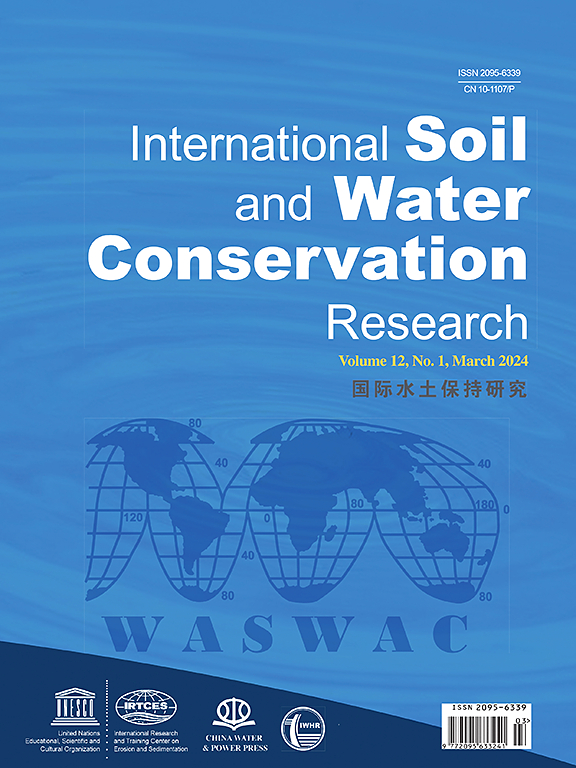为什么我们应该振兴本土集水系统?经验教训
IF 7.3
1区 农林科学
Q1 ENVIRONMENTAL SCIENCES
International Soil and Water Conservation Research
Pub Date : 2024-05-21
DOI:10.1016/j.iswcr.2024.05.004
引用次数: 0
摘要
人们普遍认为,围绕水资源短缺的问题导致前几代人开发和采用各种本土雨水收集技术。本文在文献综述的基础上,结合不同农业生态区的考古案例,探讨了这些广泛实践的土着RWH系统的现状及其影响。我们的回顾表明,由于多种因素,但主要是地下水利用、农村向城市迁移、气候变化和政策变化,土著RWH系统正在下降。然而,我们的综述还表明,在干旱地区和发展中地区,活化的本土RWH系统可以在缓解水资源短缺问题和维持生计方面发挥重要作用。虽然新技术与传统知识相结合对一些本土RWH系统产生了负面影响,但它们可以帮助实现本土RWH实践的现代化,使其更具弹性、效率和生产力。本文章由计算机程序翻译,如有差异,请以英文原文为准。
Why we should revitalize indigenous water harvesting systems: Lessons learned
It is generally believed that problems surrounding water scarcity led earlier generations to develop and employ a variety of indigenous rainwater harvesting (RWH) techniques. This paper is based on literature review and aims to discuss the current status and impact of these widely practiced indigenous RWH systems with references to archaeological case studies from different agro-ecological areas. Our review shows that indigenous RWH systems are declining as a result of multiple factors but chiefly groundwater use, rural-urban migration, climate change, and changes in policy. However, our review also reveals that revitalized indigenous RWH systems can play an important role in alleviating water scarcity problems and sustaining livelihoods in both dry and developing regions. While new technologies have negatively affected several indigenous RWH systems when combined with traditional knowledge they can help to modernize indigenous RWH practices to make them more resilient, efficient, and productive.
求助全文
通过发布文献求助,成功后即可免费获取论文全文。
去求助
来源期刊

International Soil and Water Conservation Research
Agricultural and Biological Sciences-Agronomy and Crop Science
CiteScore
12.00
自引率
3.10%
发文量
171
审稿时长
49 days
期刊介绍:
The International Soil and Water Conservation Research (ISWCR), the official journal of World Association of Soil and Water Conservation (WASWAC) http://www.waswac.org, is a multidisciplinary journal of soil and water conservation research, practice, policy, and perspectives. It aims to disseminate new knowledge and promote the practice of soil and water conservation.
The scope of International Soil and Water Conservation Research includes research, strategies, and technologies for prediction, prevention, and protection of soil and water resources. It deals with identification, characterization, and modeling; dynamic monitoring and evaluation; assessment and management of conservation practice and creation and implementation of quality standards.
Examples of appropriate topical areas include (but are not limited to):
• Conservation models, tools, and technologies
• Conservation agricultural
• Soil health resources, indicators, assessment, and management
• Land degradation
• Sustainable development
• Soil erosion and its control
• Soil erosion processes
• Water resources assessment and management
• Watershed management
• Soil erosion models
• Literature review on topics related soil and water conservation research
 求助内容:
求助内容: 应助结果提醒方式:
应助结果提醒方式:


